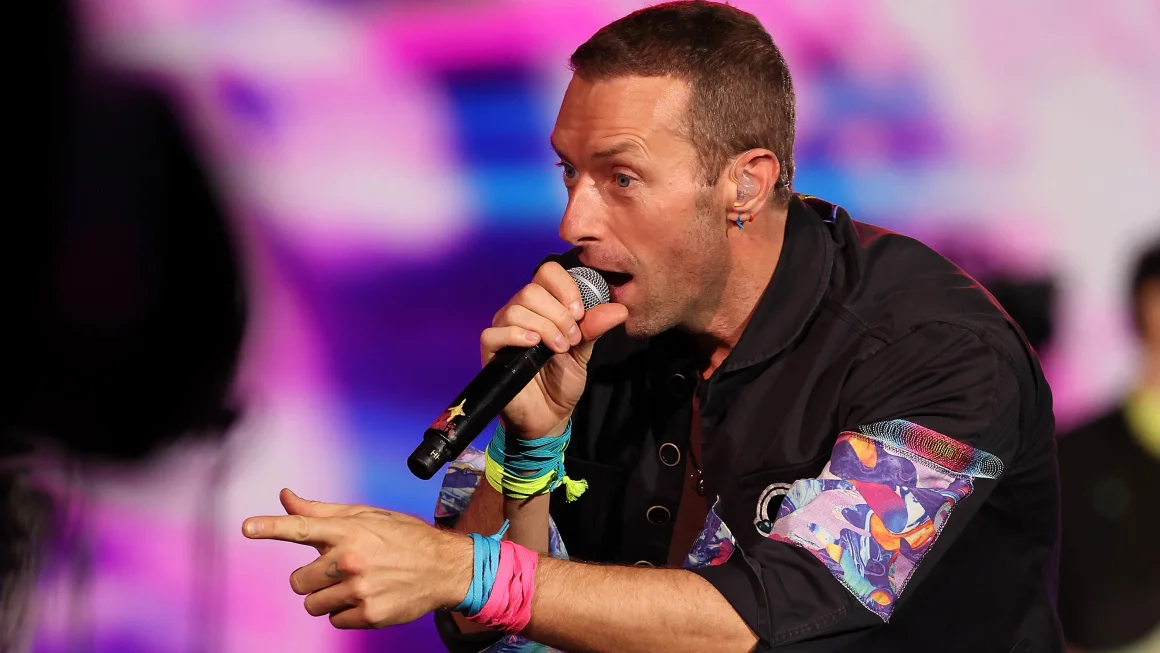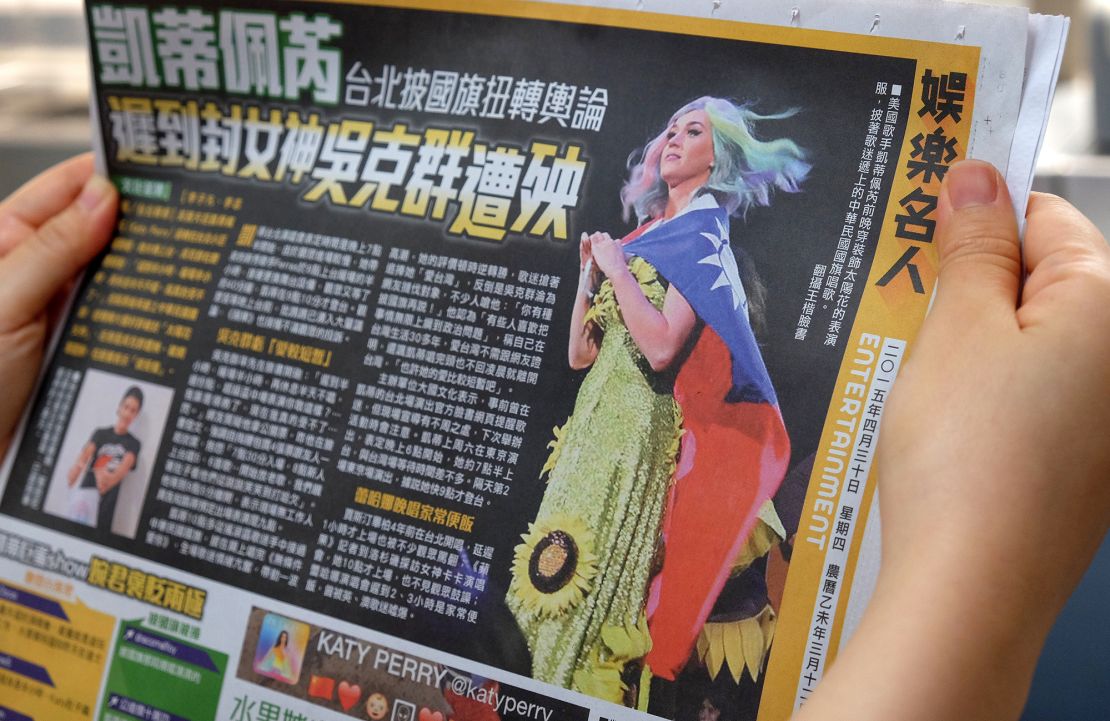Coldplay has a request: They really, really want to play in China
by Admin

Coldplay lead singer Chris Martin had a message for the tens of thousands of fans who turned up to watch the band perform in Thailand last Saturday night.
He really, really wants to play in China.
“I promise we’ll play in China one day,” Martin said to the screaming crowd when he invited two lucky fans up on stage. He selected the duo, from the southern Chinese city of Guangzhou, after spotting their banner in the crowd.
“All I say is I promise we’ll play in China one day,” Martin said, before launching into the band’s 2015 hit, “Up and Up.”
“Up and up, don’t ever give up. China loves Coldplay,” he sang.
The crowd went wild.
Martin had the same message for crowds in Tokyo in November – and even went further, hinting that the band lacks the approval of mainland Chinese authorities to perform there.
“You know, we can’t get the permission (to play in China),” he told concertgoers.
“Coldplay loves China… Please, universe! Let us play in China!”
CNN has reached out to Coldplay and their representatives, and China’s Culture and Tourism Ministry for comment.

Paul Kane/Getty Images
Para-para paradise
China’s live music industry has risen rapidly to become one of the world’s largest in the past decade and for some foreign musicians, making their mark in the country remains a career goal.
Chris Martin and Coldplay aren’t alone in wanting to serenade mainland Chinese audiences. Others, like Jon Bon Jovi, have in the past made their interest in touring the country quite known.
In 2015, the Bon Jovi frontman took Mandarin singing lessons to cover a famous Chinese love song for Valentine’s Day – a shrewd PR move that won him praise and new Chinese fans.
But the American rock star took a shot to the heart when organizers announced the cancellation of his band’s shows scheduled for Beijing and Shanghai that year.
Bon Jovi’s management did not address media queries at the time but social media users speculated the decision may have stemmed from the band’s 2009 video for “We Weren’t Born to Follow,” which featured imagery of the 1989 Tiananmen Square pro-democracy protests. Others also pointed to a 2010 Bon Jovi gig in Tokyo that featured images of the Dalai Lama – Beijing’s bete noire – on the stage background.
Two Bon Jovi gigs in the Chinese territory of Macao, which is governed under a separate system from the mainland, did however go ahead in 2015.
American pop rock band Maroon 5 were also forced to cancel shows in Beijing and Shanghai in 2015. No official reason was given but many speculated that permits had been pulled over a band member wishing the Dalai Lama happy birthday on social media.
Similarly, promoters for Oasis said they were forced to cancel mainland China shows in 2009 after authorities reportedly discovered a member of the British rock band had played at a Tibetan Freedom gig two years earlier. The rest of the band’s Asia tour, including a concert in Hong Kong, went ahead as planned.
But it hasn’t always been this way. Once a firm fixture on international tour circuits, especially in the run-up to and after the 2008 Beijing Olympics, which presented the Chinese capital as a coveted stage venue to the world and signaled China’s prowess as a political, economic and cultural superpower.
Much has changed since then, with Chinese leader Xi Jinping ushering in what many analysts say is a more authoritarian and internationally isolated era.
Meanwhile, Covid-19 has also left its mark.
China closed its borders for most of the pandemic and while it has since reopened, entering the country – let alone staging concerts – remains no easy feat.
Logistical challenges like securing visas, obtaining permits and official approval, play a major role in the decision-making process for bands and their management.
As a result, Chinese fans – like the duo Coldplay invited up on stage – must often travel overseas to catch some of the world’s biggest stars, with concerts in locations like Bangkok, Singapore and Kuala Lumpur often having sizable Chinese contingents.
Worth the risk?
The opacity and unpredictability of Chinese authorities creates risks for international acts, many of whom have also noticeably skipped Hong Kong as well as mainland China on their Asia tours in the recent years.
Canceling a concert would be the worst-case scenario for any band, as it creates an expensive logistical nightmare, organizers say. Tickets must be refunded and fan disappointment managed – and event organizers do not want to take these risks.
China’s infamous censorship laws can also be a major turnoff for Western acts. The ruling Communist Party has long maintained a pervasive censorship system, covering everything from women’s cleavage to criticism of the political system and even jokes. But the level of oversight has ramped up under leader Xi.
Chinese authorities have also been known to vet the content of shows, including setlists and lyrics. Those deemed to step over political red lines face severe consequences, particularly Chinese performers.
Musicians might also have political or ethical concerns about freedom of speech and human rights issues in China – so their decision to perform, or not, is often a personal and complex one for each musician. LGBTQ rights, for example, are often embraced by many Western acts but they remain a politically sensitive issue for China’s Communist Party.
It is difficult to know whether any of Coldplay’s back catalogue or statements have alarmed Chinese authorities but the band has dipped its toes into geopolitics in the past.
In October 2022, the band invited exiled Iranian actor Golshifteh Farahani on stage during a gig in Buenos Aires to sing a song that had become an anthem for anti-government protests coursing through Iran at the time.
“Young women and young people are fighting for their freedom, for the right to be themselves and we believe as a band that everybody should be able to be themselves as long as you don’t hurt anybody else,” Martin told the crowd at the time.
Rhetoric like that during any concert in China would not go down well with authorities in a country where protests are quickly extinguished.
In 2008, Icelandic singer Bjork was banned from China after she declared support for Tibet during a performance of her song her song “Declare Independence” at a Shanghai concert.
Even a star’s actions outside of China can create hurdles. Justin Bieber was banned from entering the country in 2017 for “bad behaviors,” according to Beijing’s Municipal Bureau of Culture.
“His series of misbehaviors while living abroad and during his performances in China has caused public resentment,” a statement from the bureau read. “To regulate the domestic entertainment market and purify its environment, we find it inappropriate to bring in performers with bad behaviors.”

Sam Yeh/AFP/Getty Images
Taiwan is another contentious issue that can ensnare musicians. Despite never having controlled the island, China’s Communist rulers view Taiwan as part of their territory and view any use of its flag as defiance.
Singer Katy Perry found this out in 2017. Photos of her 2015 concert in Taiwan resurfaced, reminding Chinese authorities that she had worn a sunflower dress – a symbol of the island’s pro-democracy student protest movement – and draped Taiwan’s flag over her shoulders on stage. She was subsequently denied a China visa to perform at a fashion show.
Never shy of controversy, pop diva Madonna pulled a similar stunt, wrapping herself in the island’s flag at her first Taiwan concert in 2016, angering – and alienating – fans in mainland China.
In December, Taiwanese band Mayday – one of the most prominent rock groups in the Chinese-speaking world – found itself being investigated in China for alleged lip-synching during their recent tour of the mainland. Taiwanese intelligence alleged the investigation was politically motivated to coincide with the island’s presidential elections.
Some performers have found a way to work within the constraints. Chinese censorship did not deter heavy metal legends Metallica when they played a series of 2017 concerts in China. Their setlists were reportedly submitted to the Chinese Culture Ministry for approval, which resulted in “Master of Puppets,” one of their biggest hits, being cut from shows.
“Why shouldn’t you respect their culture when you’re there as a guest and been invited to play? We want to be respectful, and just because we do things differently, it doesn’t mean it should be forced upon (others),” frontman James Hetfield said in an interview with the South China Morning Post in Hong Kong at the time.
“But hopefully we’ll keep coming back and they (the Chinese authorities) will realize we’re not a threat politically and have no agenda except to cross boundaries with music and let people enjoy the songs.”
Coldplay lead singer Chris Martin had a message for the tens of thousands of fans who turned up to watch the band perform in Thailand last Saturday night. He really, really wants to play in China. “I promise we’ll play in China one day,” Martin said to the screaming crowd when he invited two lucky fans up on…
Recent Posts
- Liverpool ends 15-year curse with statement win over Real Madrid
- The TSA-approved hack that allows travelers to bring a bottle of water through airport security
- Подводный WiFi, аквапонные фермы: как морские техностартапы привлекают инвесторов
- “Подводный интернет”: эта женщина может подключить беспроводную сеть на 3-километровой глубине
- Inside the wild world of Osaka’s dangerous, adrenaline-fueled float festivals